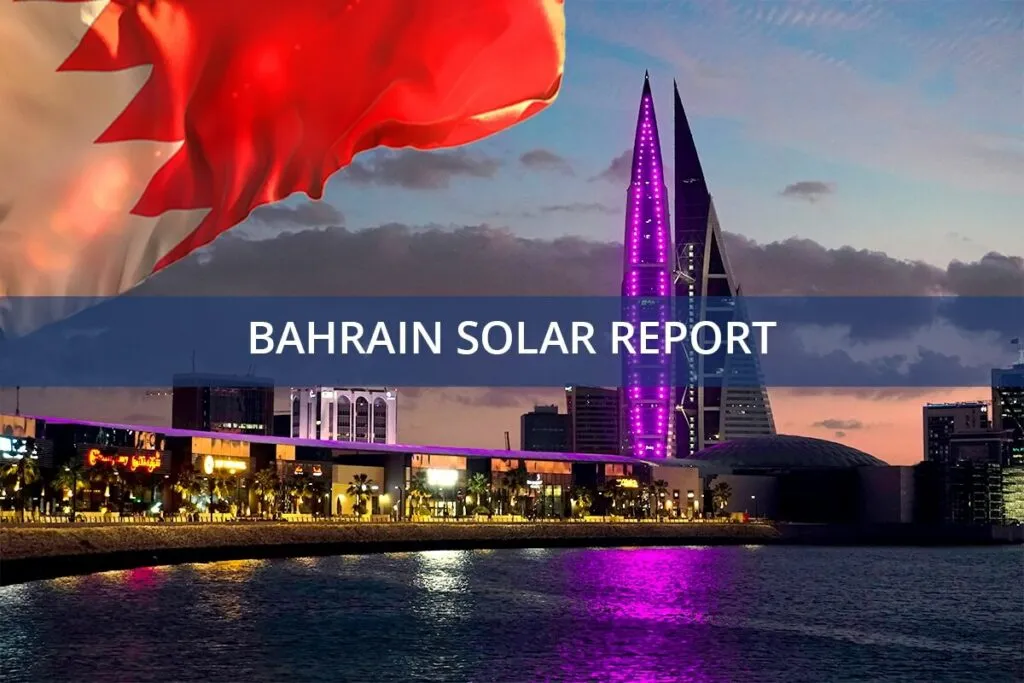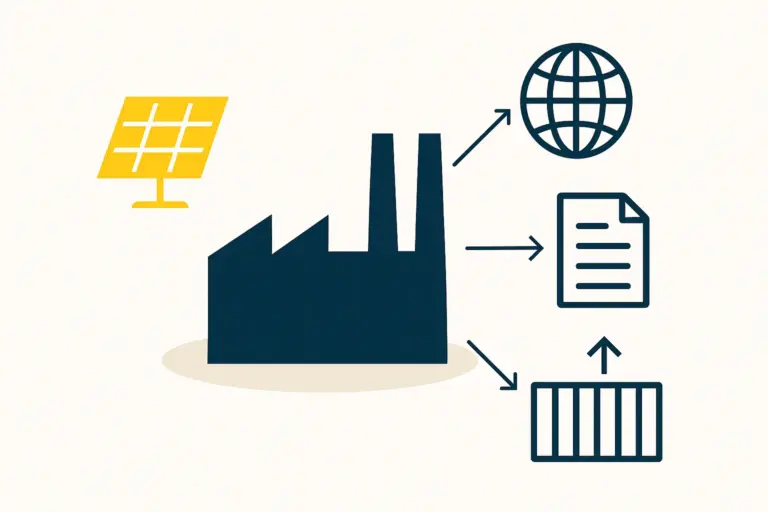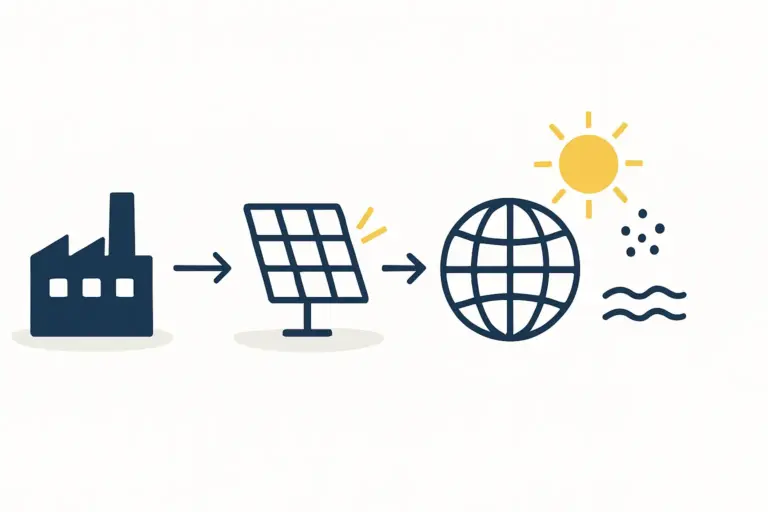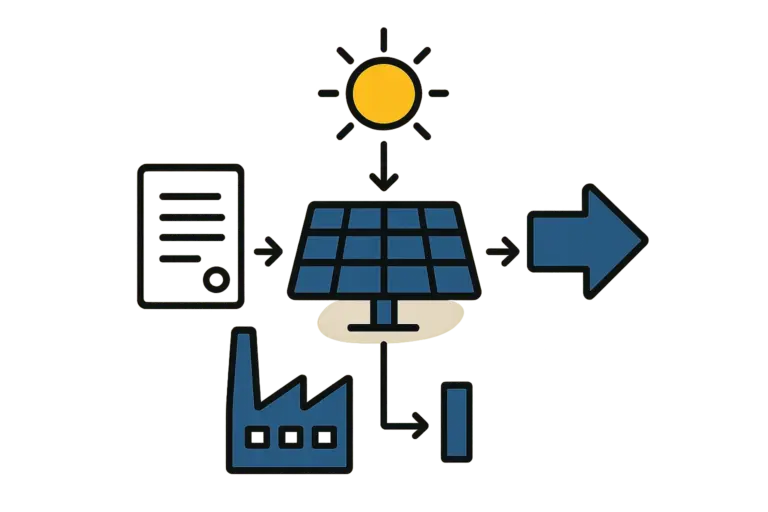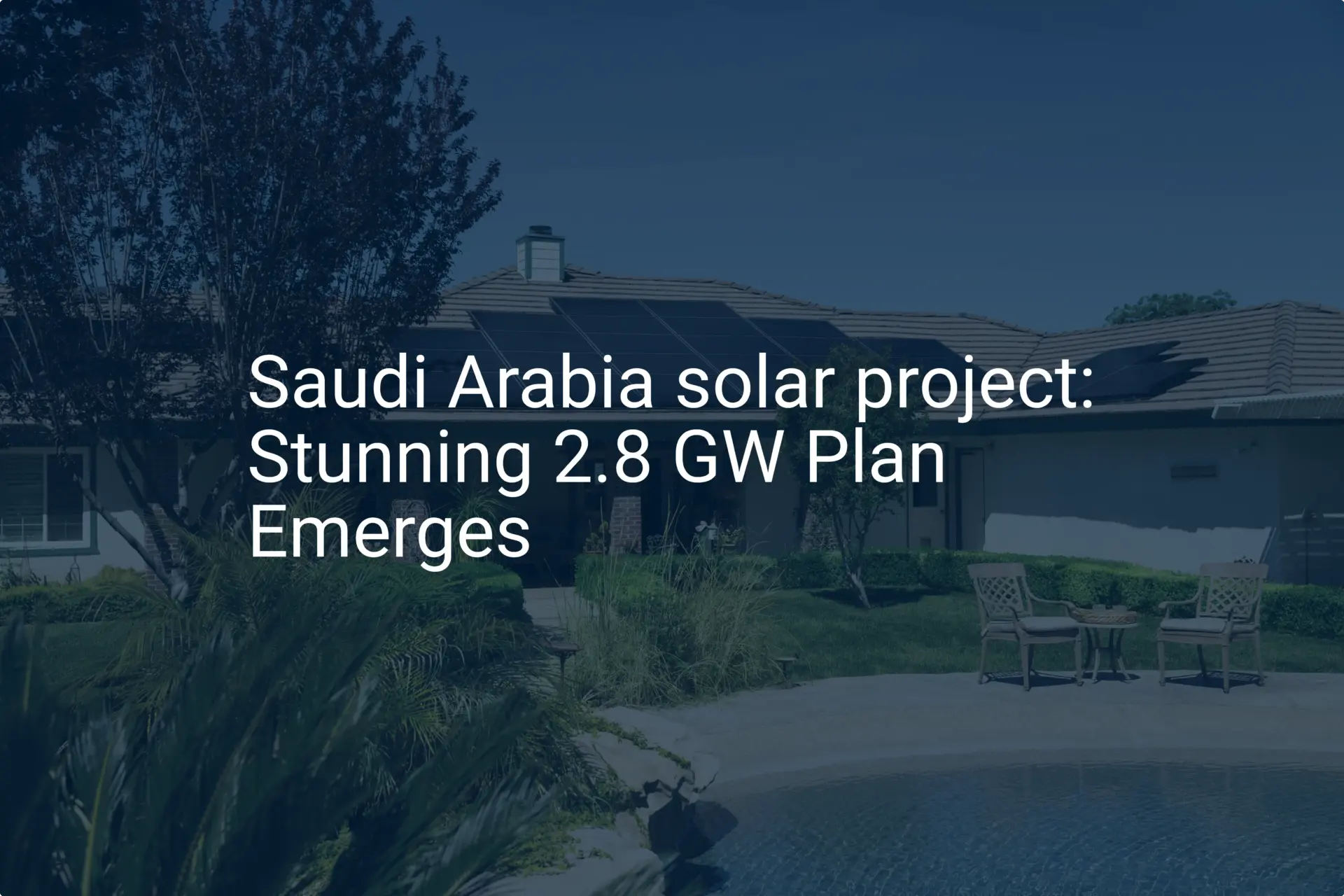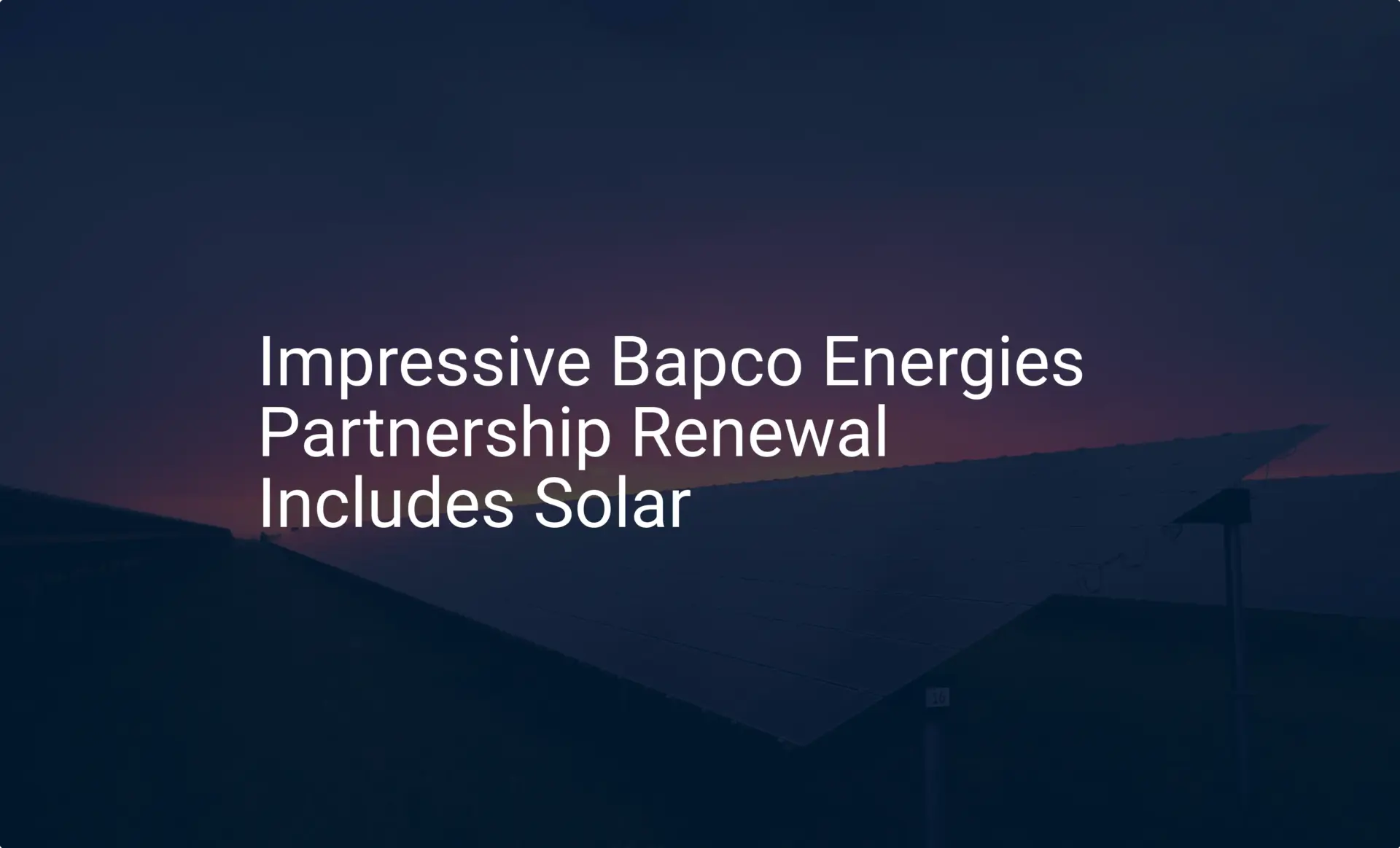A Comprehensive Guide to Labor and Logistics for a Solar Factory in Bahrain
Building a new factory in any country requires a careful assessment of local conditions. For an entrepreneur considering a solar module production line, two factors are critical: an available skilled workforce and efficient supply chain logistics. After all, a factory cannot operate without the right people, nor can it be profitable without seamless access to raw materials and export markets.
This guide offers a practical look at these two pillars—labor and logistics—for establishing a solar module factory in the Kingdom of Bahrain.
Table of Contents
Don’t just dream solar, activate it.
Get the practical solutions you need from our comprehensive services, or gain game-changing knowledge from our Premium Course. We’re your partner in bringing solar power to life.
Bahrain’s Growing Solar Energy Sector
Bahrain has established clear goals for integrating renewable energy into its national grid, targeting 280 MW of renewable capacity by 2025 and 710 MW by 2035. This government-led initiative creates a stable domestic market for solar modules and signals strong support for the renewables industry. For an investor, this commitment reduces market risk and aligns a new manufacturing venture with national strategic objectives.
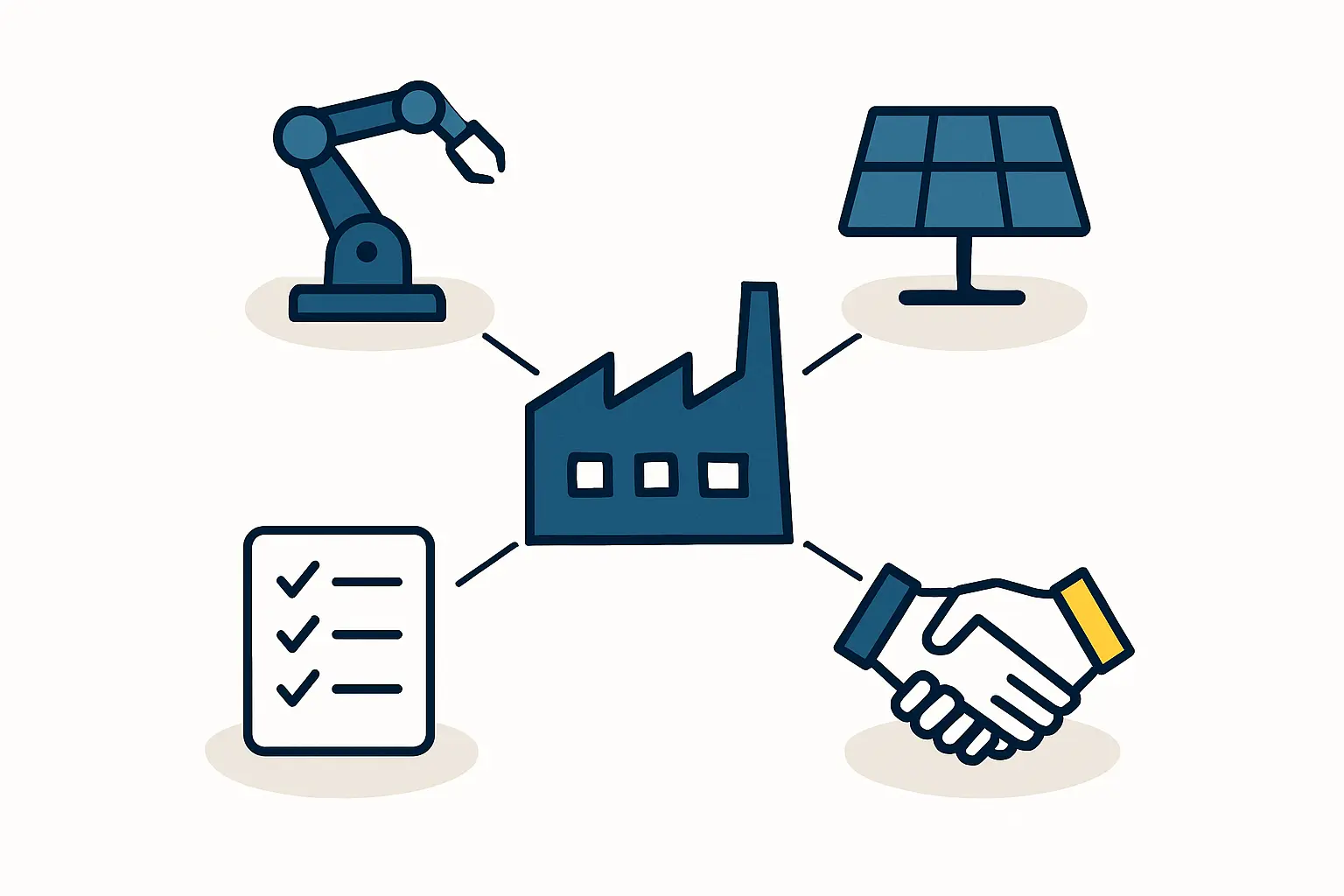
Assessing the Skilled Labor Market for Your Solar Factory
A modern solar module factory is a highly automated facility that relies on a mix of technical, engineering, and operational talent, and Bahrain’s workforce offers several key advantages.
The Availability of a Skilled Workforce
Bahrain is known for its young, educated, and often bilingual (Arabic and English) population. The government has invested heavily in education and vocational training, creating a talent pool with strong foundational skills. While direct experience in solar module manufacturing may be limited, the local workforce has transferable skills in engineering, technology, and manufacturing operations.
With over 70% of the country’s Information and Communication Technology (ICT) workforce aged 18 to 24, there is a ready generation comfortable with the digital systems that run modern factories.
This means key roles like engineers, quality control technicians, machine operators, and maintenance staff can be readily filled by drawing from Bahrain’s existing technical talent.
Wage Structures and Labor Costs
Labor costs in Bahrain are regionally competitive, and the government actively supports the employment of its citizens through various programs that can significantly lower operational costs.
Organizations like Tamkeen offer wage support programs that subsidize the salaries of Bahraini employees, making local talent a financially attractive option. This direct financial support helps manage one of the largest fixed costs in any manufacturing operation.
Government-Backed Training and Development
Investors do not need to build their workforce from scratch. Bahrain’s labor fund, Tamkeen, is a key strategic partner for any new industrial venture, working to upskill the national workforce to meet the demands of emerging sectors like renewable energy.
A new solar factory can collaborate with Tamkeen to design training modules for solar panel assembly, quality assurance, and equipment maintenance. This government support ensures a sustainable pipeline of qualified workers for your facility as it grows.
Streamlining Your Supply Chain: Logistics in Bahrain
A solar factory’s success hinges on its ability to efficiently import raw materials and export finished products. Bahrain’s strategic location and advanced infrastructure are perfectly suited to support this flow of goods.
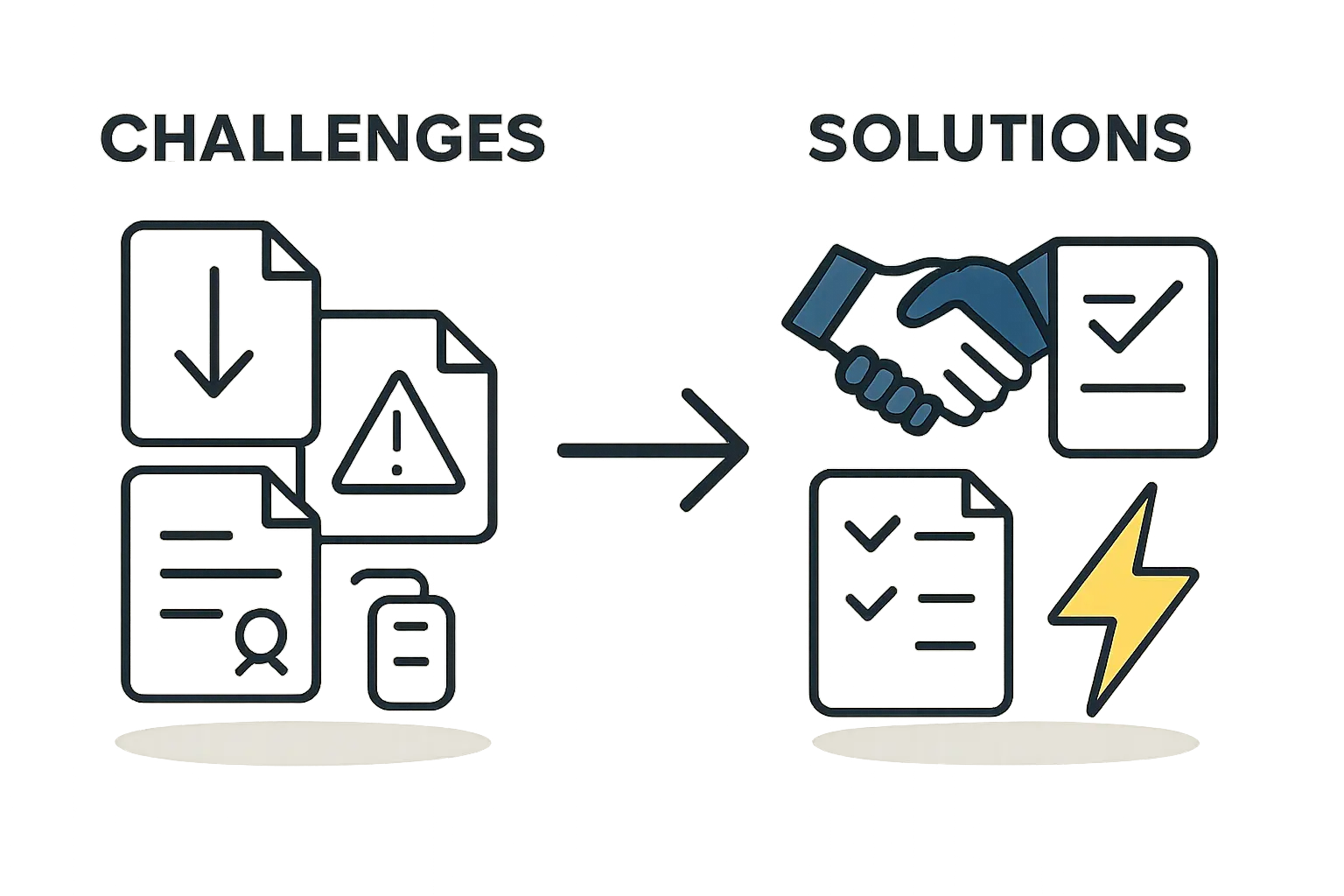
Bahrain’s Strategic Location and World-Class Ports
Located in the heart of the Arabian Gulf, Bahrain offers excellent access to regional and global markets. The Khalifa Bin Salman Port (KBSP) is a modern, efficient deep-water port capable of handling the world’s largest container ships.
Adjacent to the KBSP is the Bahrain Logistics Zone (BLZ), a one-square-kilometer hub dedicated to logistics and value-added services. By setting up within or near the BLZ, a factory gains direct, streamlined access to port facilities, minimizing transport times and costs between the production line and shipping vessels. This integration of port and logistics services is a significant competitive advantage.
Importing Raw Materials for Solar Panel Production
A solar factory needs a steady supply of raw materials, such as solar cells, tempered glass, aluminum frames, and encapsulants. Bahrain’s logistics framework simplifies importation, as the BLZ offers streamlined customs procedures and is well served by global logistics providers like GEODIS with established local operations. This network allows for reliable and cost-effective sourcing of components from suppliers in Asia, Europe, or North America.
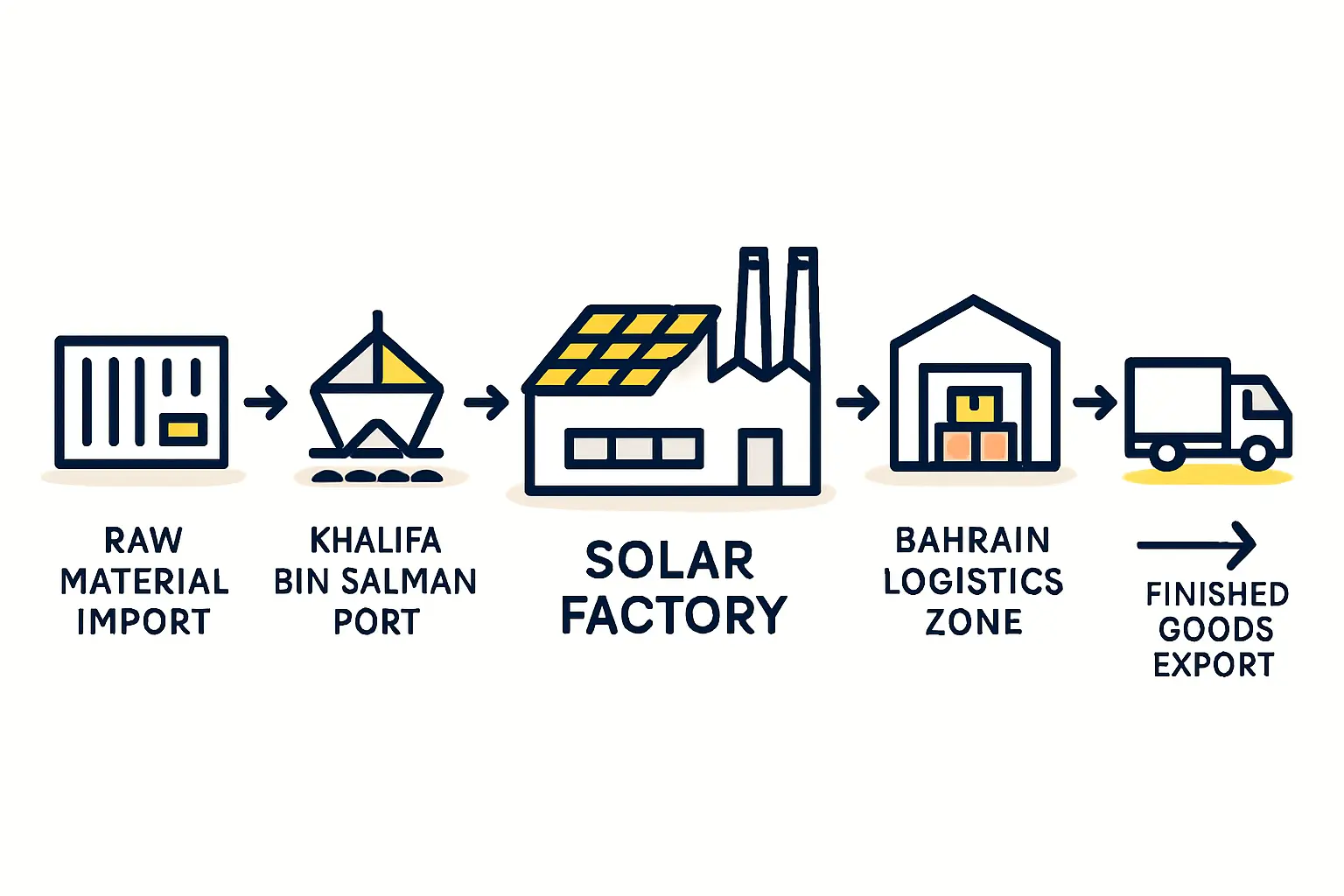
Exporting Finished Solar Modules
Once your modules are manufactured, Bahrain’s logistical connections offer efficient pathways to market. The King Fahd Causeway provides direct road access to Saudi Arabia, the largest market in the GCC, allowing for quick and easy truck-based delivery to projects across the region.
For markets further afield in the Middle East, Africa, and Europe, the Khalifa Bin Salman Port serves as a major transshipment hub. Your finished solar panels can be loaded onto containers and shipped globally with competitive transit times, enabling you to compete on the international stage.
Conclusion
For an entrepreneur or investor planning a new solar module factory, Bahrain offers a compelling operational environment. Its combination of a young, adaptable workforce, strong government support for training and wages through Tamkeen, and a world-class, integrated logistics hub at the Khalifa Bin Salman Port creates a solid foundation for success. These factors directly address the two most critical operational challenges—securing skilled labor and managing the supply chain—making Bahrain a strategic and viable location for investment.
Frequently Asked Questions
What specific skills needed for a solar factory are available in Bahrain?
While direct experience in PV manufacturing is still developing, Bahrain has a strong talent pool with essential, transferable skills. This includes mechanical and electrical engineers, technicians familiar with automated systems, quality control specialists, and logistics managers. The country’s focus on technical and vocational education provides a solid base to build upon with specialized training.
How does Bahrain’s government directly support foreign investors in manufacturing?
The government provides support through multiple channels. The Economic Development Board (EDB) acts as a primary point of contact, assisting with setup and regulatory navigation. Tamkeen offers significant financial incentives, including wage subsidies for Bahraini employees and funding for customized training programs to develop the specific skills a factory requires.
What is the main logistical advantage of Bahrain over other regional locations?
Bahrain’s key advantage is the seamless integration of its port and logistics infrastructure. The proximity of the Bahrain Logistics Zone to the modern Khalifa Bin Salman Port creates a highly efficient ecosystem that reduces handling times and costs. This is complemented by a direct causeway link to Saudi Arabia, which provides unparalleled land-based access to the region’s largest market—a distinct benefit over many other coastal locations.

